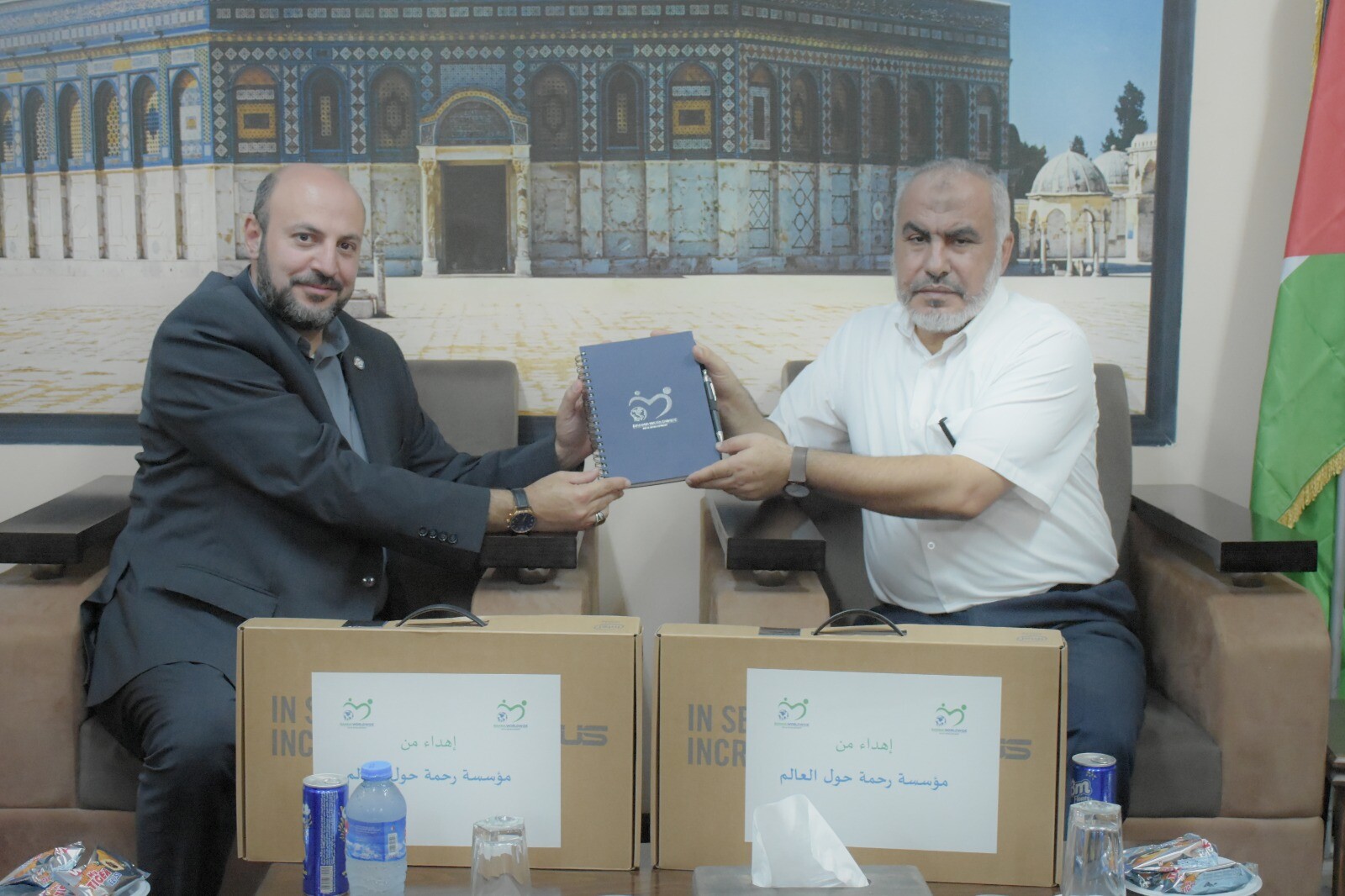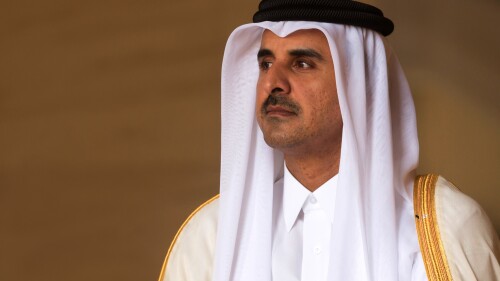Both the executive and the legislature have failed, a year after the October 7 attacks, to clamp down on the billion-dollar Hamas-aligned Islamist financing and radicalization network in the United States. Among parts of the security establishment, this failure might not have been an oversight but deliberate disregard.
In 2023, a week after the October 7 attacks, FBI director Christopher Wray appeared before the Senate Committee on Homeland Security and Governmental Affairs, declaring that his agency would investigate violent domestic sympathizers of Hamas.
However, Wray did not commit the Bureau’s attention to American Islamist financial networks supporting Hamas, only noting equivocally that such efforts were only “historically” part of the FBI’s approach.
And yet, law enforcement has work to do. In late 2023, Focus on Western Islamism investigated 20 tax-exempt non-profits aligned with Hamas. Officials of these charities have variously expressed support for the October 7 attacks, praised the Nazis for killing millions of “impure” Jews, lionized Hamas’s Qassam Brigades, and engaged in contractual relationships with Hamas ministry offices and Hamas proxies in Gaza.
Over the past decade, some of these charities’ 501(c) bodies in the United States have even received tens of millions of dollars of federal grants and enjoyed close collaboration with various federal offices.
Since our 2023 report, the Middle East Forum has continued to uncover additional evidence of Western Islamists’ collaboration with Hamas.
Just last month, we found that officials of the Michigan charity Rahma Worldwide repeatedly met, presented gifts, and signed contracts with Hamas minister Ghazi Hamad—a member of Hamas’s politburo—along with other terror officials at the Ministry of Social Development.
Weeks after the October 7 attacks, Hamad promised that Hamas would repeat the attacks “time and again until Israel is annihilated.”
Ghazi Hamad’s terror ministry also refers, on multiple occasions, to partnerships with Islamic Relief, an international Islamist charity headquartered in the United Kingdom whose U.S. branch has fundraised hundreds of millions of dollars. Branches of Islamic Relief have previously received hundreds of thousands of dollars of grants and millions of dollars of loans from the federal government.
We also recently discovered that Islamic Relief branches funded, partnered, and held events with a Hamas charity in Gaza named the Bayader Association for Environment and Development just months before the October 7 attacks. One of these events was attended by Hamas official Abdul Salam Haniyeh, son of the terror group’s late political leader Ismail Haniyeh.
Another charity, the American Near East Refugee Aid (ANERA), is also a long-standing partner of Bayader, whose annual reports note “coordination” and “meetings” with Hamas’s Ministry of Interior, Ministry of Works, Ministry of Social Affairs, and Ministry of Agriculture.
ANERA has long served as an important conduit for United States Agency for International Development (USAID) monies in the Middle East, with government press releases showing off their close relationship. And yet, on top of ANERA’s collaboration with Hamas proxies, Middle East Forum has uncovered extreme rhetoric from staff and officials at ANERA, including delight at the October 7 attacks (a “beautiful morning,” one ANERA member said), as well as praise for Hamas fighters and endorsements of calls to “erase the Jews.”
This a serious problem. But Middle East Forum’s work to expose Hamas-aligned operations in the United States does effect change. At least one large private grant-making foundation cancelled a multi-million dollar award to one of the Hamas-aligned charities because of our 2023 report, sources have confirmed to Middle East Forum.
In 2024, InterAction, an enormous alliance of NGOs funded by the State Department and the Agency for International Development, appeared to shut down its lobbying arm after a decline in federal support. Named the “Together Project,” InterAction’s lobbying effort had brought multiple terror-tied Islamist charities together to defend Islamist extremism and inhibit counter-terrorism measures in the non-profit sector.
The U.S. government may even be listening. Since Middle East Forum published its 2023 investigation, federal agencies have not, according to the government’s own published records, conferred a single award (or sub-award) to any of the organizations identified by Middle East Forum as “Hamas-aligned,” in an apparent departure from funding behaviors of the last several years.
Still, it is too early to celebrate the federal government’s probity. The database of federal spending is often slow to update and is filled with errors. It is possible that grants have indeed been issued, but not yet publicly disclosed. And just last month, the head of Rahma Worldwide, Shadi Zaza, met with National Security Council officials at the White House, just a year after he was in Gaza meeting with Hamas.
Worst of all, there is also deliberate inaction on these issues in other parts of the federal government, particularly at the Department of Justice and law enforcement agencies.
At least one large private grant-making foundation cancelled a multi-million dollar award to one of the Hamas-aligned charities because of our 2023 report, sources have confirmed to Middle East Forum.
A year after the October 7 attacks, these Hamas-aligned charities, part of large and powerful industries of domestic Islamist institutions and operatives tied to violence overseas, continue to operate with no apparent fear of prosecution. No indictments have been filed, there is little evidence of ongoing criminal investigations, and the administration appears uninterested in discussing the subject.
In spite of evidence showing domestic institutions’ ties to designated foreign terror organizations and their proxies, as well as seemingly clear instances of violations of terrorism material support laws, the security establishment’s limited and waning prosecutorial interest in Hamas has apparently been restricted to overseas persons and networks.
It is tempting to suspect that some public officials consider domestic Hamas networks a risky target in an election year, especially as the Islamist-influenced Muslim vote is being courted by both parties.
But foolish security decisions have also encouraged federal friendliness towards Hamas-aligned charities. Since the government conspicuously shut down efforts to monitor and prosecute Hamas networks in the United States around 2008, Hamas proxies and supporters have flourished.
Indeed, Islamist charities have even been employed as partners in the battle against Salafi jihad. Jonathan Schanzer at the Foundation for Defense of Democracies noted in testimony before Congress, “One official candidly told me that suspected Hamas activists in the United States were viewed then as protected sources in the fight against the Islamic State terrorist group.”
Middle East Forum has encountered similar attitudes, hearing intelligence officials explicitly discourage action against domestic Hamas organizations.
Public pressure, through the published investigations of groups such as Middle East Forum, can at least inhibit both federal and private patronage of terror support networks in the United States. But such funding accounts for a small percentage of Islamist charitable revenue. The more important task is changing the culture and mindset of the security services, but this will require pressure and scrutiny from the legislature.
And so far, too much of the GOP attack on the Biden administration’s domestic handling of Hamas and antisemitism has been overly-focused on groups such as American Muslims for Palestine and Students for Justice in Palestine, which cheerlead for Hamas and other “resistance” groups.
These rotten, radical groups deserved to be opposed, certainly. But they are also the organizations that want to be opposed. Their clamor serves to distract lawmakers, journalists, and the public from a quieter, more considered effort by the billion dollar industry of 501(c) Islamist infrastructure working to fund Hamas’s welfare and radicalization efforts in Gaza.
The Department of Justice, in the wake of 9/11, found that Hamas, Hezbollah, and Al-Qaeda had previously built, unmolested, a substantial network of charitable and business institutions across America that poured money and men into terror across the globe.
At the time, prosecutors and law enforcement investigators began the daunting task of dismantling these threats, after years of looking the other way. A year after the October 7 attacks, it seems, once again, the federal government has allowed terror networks to grow unchallenged, and a new but familiar daunting task awaits. But this time, has anyone in the security establishment or Department of Justice realized their mistake?










